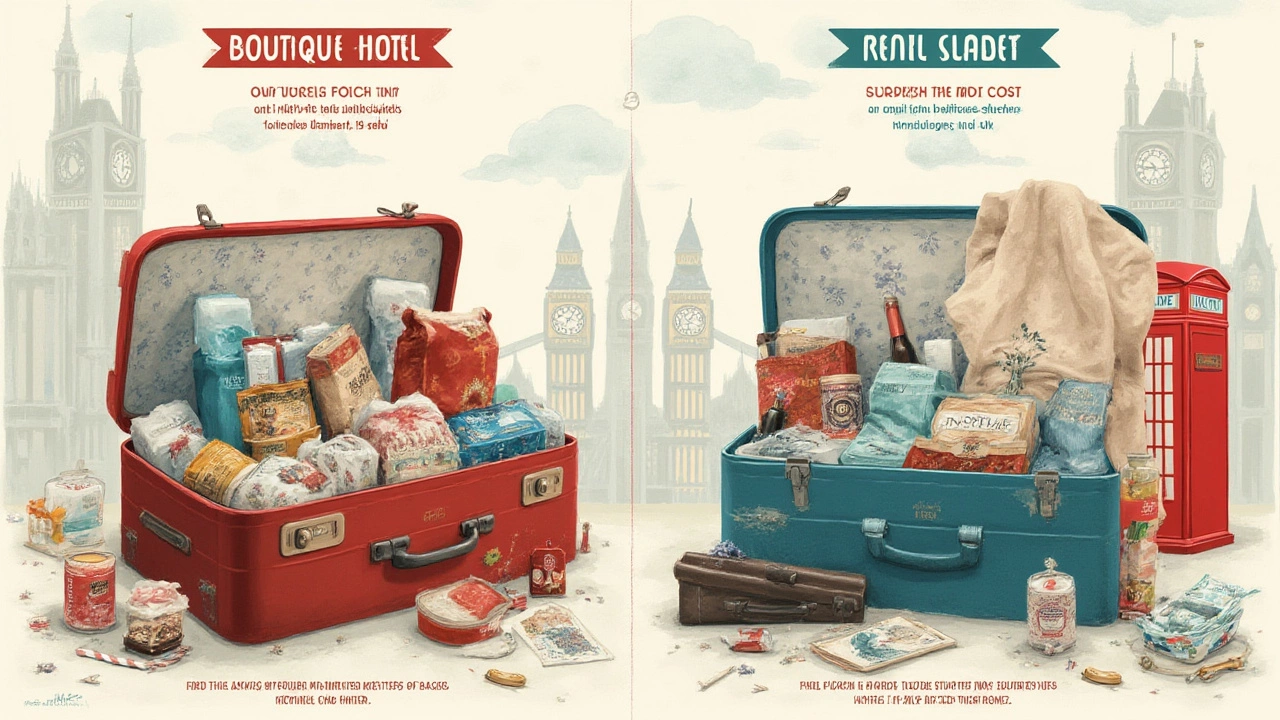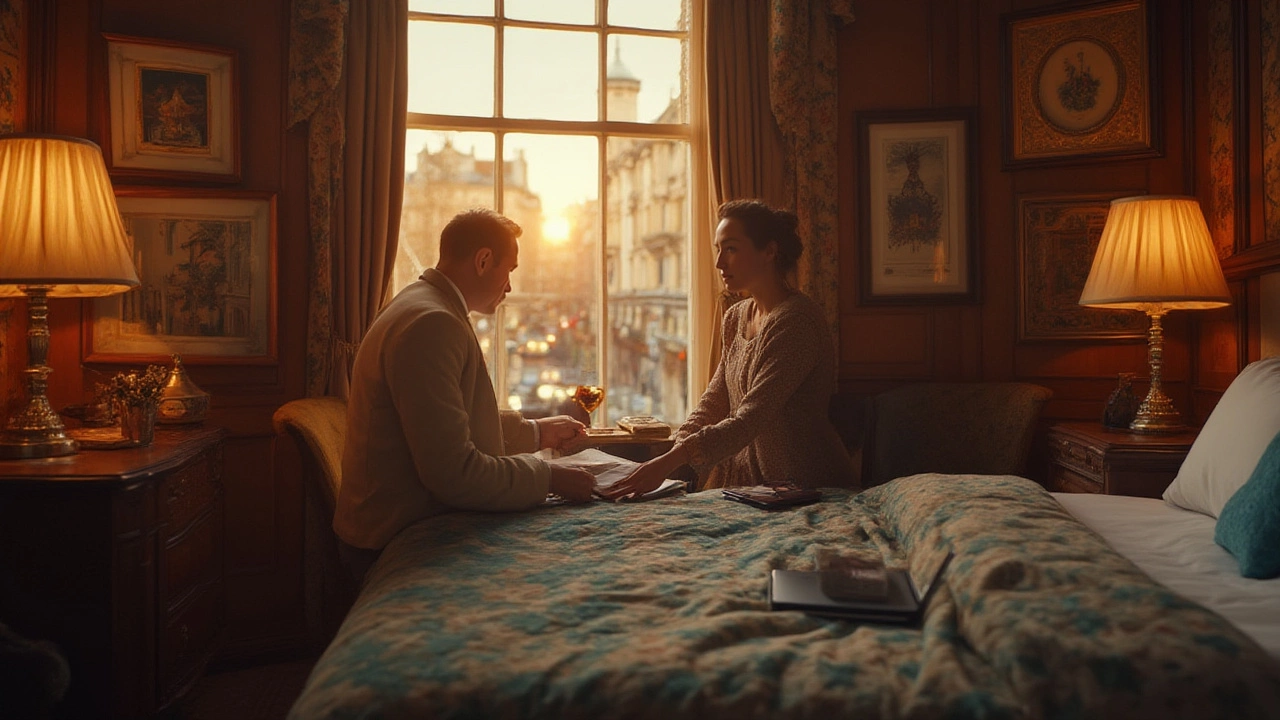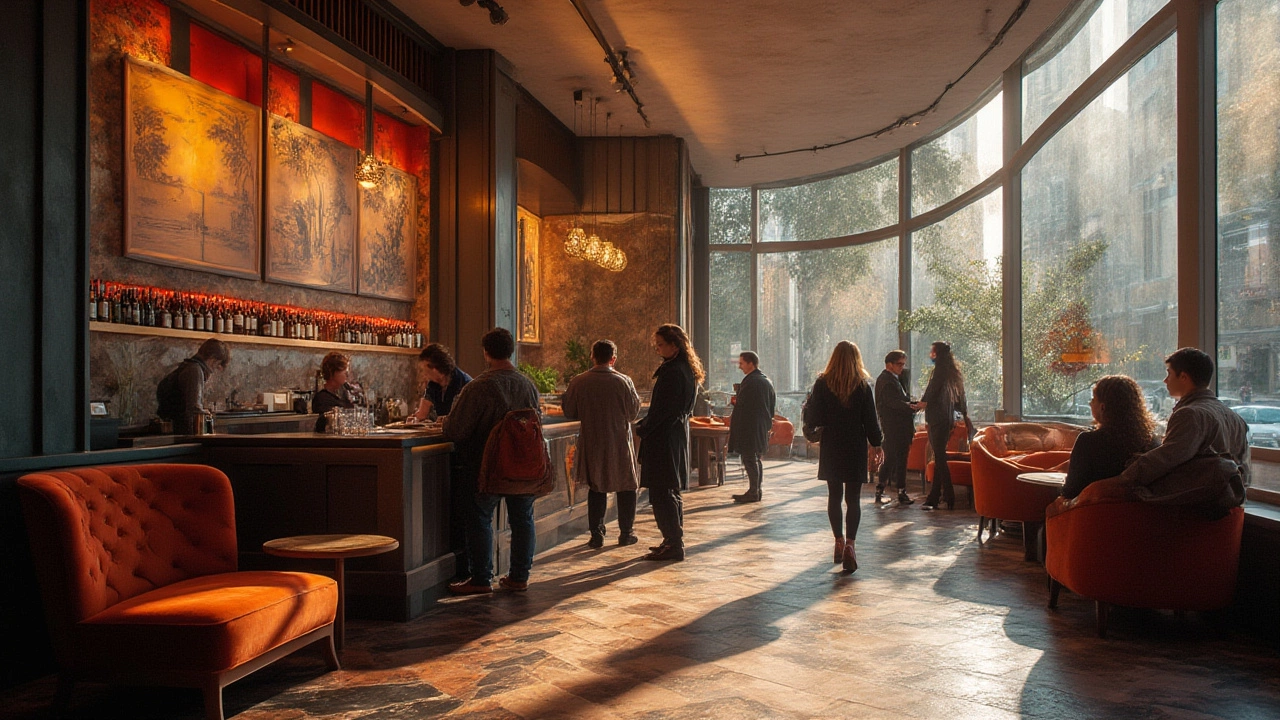Ever clicked on a boutique hotel, heart pounding at the gorgeous photos, only to see the price tag and wonder—are they always pricier than the bigger hotel chains? Boutique hotels flaunt their quirky charm, artsy decor, and claims of an ‘unforgettable experience.’ But is the cost always higher—and is the splurge really worth it? I’ve stayed in both tiny Parisian gems and giant Marriotts in Miami, so let’s pull back the fancy curtains. Here’s what really sets boutique hotel prices apart, and whether you’ll pay more for the vibe.
What Makes a Hotel "Boutique"—And Does It Cost More?
Boutique hotels aren’t just about Instagrammable lobbies or hand-painted headboards. They’re usually independent or part of a small chain, often with fewer than 100 rooms, rooted in a specific local flavor. You get mood lighting and locally roasted coffee at breakfast instead of copy-paste lobby art and continental buffets. But before you assume boutique stands for "expensive," let’s look closer at what goes into their pricing—and why it sometimes feels higher than your average Holiday Inn.
Let’s look at what usually pushes prices up:
- Location Boutique hotels often set up shop in lively neighborhoods—think downtown areas, trendy districts, or right by landmarks. That real estate is pricey, and it all trickles into your nightly rate.
- Design & Uniqueness Custom interiors, local art, and thoughtful little perks don’t come cheap. Instead of ordering furniture in bulk, they’re paying designers or even local artisans. These touches set the mood—and nudge the price upward.
- Service Boutique hotels usually have flat-out better staff-to-guest ratios. That means more attention, personalized recommendations, and a vibe that’s hard to match at a cookie-cutter chain hotel.
Now, here’s a fun fact: According to a 2024 Hotels.com pricing report, boutique hotels in major US cities averaged $269 a night, compared to $199 for traditional chain hotels in similar locations. The difference isn’t huge, but it’s there. Is it always this way? Not really—sometimes you can actually snag a boutique stay for less, especially off-season or midweek.
But is the higher average justified? Let’s keep going.
Why People Pay More—And Sometimes Less—For Boutique Hotels
This is where it gets interesting. Travelers aren’t just paying for a bed. They want an experience. Maybe it’s the record player in every room, the rooftop bar with live jazz, or the owners who greet them by name. This works like magic on those hunting for something memorable, and it’s especially true for couples, solo travelers, or anyone tired of the bland predictability of big brands.
But here’s the twist: Boutique hotels can actually save you money in some cases. Think about all the little extras that usually come with a boutique booking. Free welcome drinks, complimentary bikes, artisan toiletries, or even locally-sourced breakfast spreads—these perks can add up if you paid for them elsewhere.
You may also avoid some of those hidden fees that pop up at larger chains: WiFi charges, parking fees, resort costs. Boutique hotels generally roll more into their basic price, so even if the headline number is a bit higher, the actual value can feel better or even out in the end.
That said, there are also boutique hotels at the low end. In cities like Lisbon or Budapest, you’ll find smaller, quirky spots for under $100 a night. If you’re flexible on location or travel in the off-season, you can land a total steal.
Emma Lawrence, travel editor for The Guardian, puts it plainly:
“Boutique isn’t a guarantee of luxury—and it isn’t always expensive. Sometimes it’s independence, warmth, and neighborhood soul… with a pleasant price tag to match.”

Boutique Hotels vs. Chains: A Side-by-Side Breakdown
If you like hard facts, here’s a quick comparison of what you typically get:
| Feature | Boutique Hotels | Large Chain Hotels |
|---|---|---|
| Room price range (major cities) | $120–$850 | $100–$700 |
| Room size (average) | Smaller, often uniquely shaped | Standardized layouts, usually larger |
| Extra fees | Usually included | Often added (wifi, parking, resort, etc) |
| Amenities | Unique, locally inspired | Standardized, chain-wide perks |
| Loyalty rewards | Rare or limited | Extensive programs |
| Service style | Personalized | Efficient but generic |
| Location | Trendy, central, or historic | Varied; often business districts or near highways |
Notice how chains often come out ahead on loyalty rewards but might hit you up for extras. Boutique hotels aren’t always more expensive at first glance, but because they’re less standardized, you can’t always compare apples to apples.
How to Find the Best Value in Boutique Hotels
It’s easy to get starstruck by moody lighting and free Prosecco—but how do you know you’re getting your money’s worth? Start by checking what the rate gets you. Does it cover breakfast, WiFi, parking, or that killer rooftop view? Toss the chains’ points aside for a minute and look at the full experience.
Here are some real-world tips from seasoned travelers and insiders:
- Check mid-week rates: Fridays and Saturdays cost the most. Book Tuesday-Thursday and you'll probably save big.
- Look just outside tourist zones: Sometimes, walking 10 minutes can slash the price in half—but the vibe's just as chic.
- Use niche booking platforms: Some boutique hotels only show up on smaller, travel-nerd platforms (i.e., Tablet Hotels, Mr & Mrs Smith, or Small Luxury Hotels of the World) that often have exclusive rates or perks.
- Call the hotel directly: Fancy? No. But sometimes you get better deals or upgrades—it’s true, especially in Europe.
- Travel in off-seasons: Early spring and late fall are usually less crowded and much cheaper.
Think about what actually matters to you. Palm-printed wallpaper? Location over everything? A shower you could turn a cartwheel in? The magic of boutique hotels is that there’s almost always something distinct for every traveler—and sometimes, that extra “wow” feels cheap at any price.

Is The Experience Worth The Potential Extra Cost?
So, are boutique hotels more expensive? Usually, but not always. You’re paying for personality, originality, and an experience with soul, not just somewhere to crash. There are deals if you look, especially if you flex on travel days or zip codes. And you just might find the best hotel memory of your life in a place you’d never see advertised on a highway billboard.
The value of a boutique hotel isn’t only in plush bedding or gold-plated breakfasts—it’s the sense of place and the little moments you remember later: The staff who seem to actually love working there; the locally roasted coffee waiting for you in the morning; the playlist that’s just right as you sink into the lobby chair with your laptop. Those extras, not always written down as amenities, often mean more than loyalty points gathered with every cookie-cutter stay.
Here’s the secret: sometimes what you’re really paying for is the feeling. And isn’t that what a great trip is all about?
